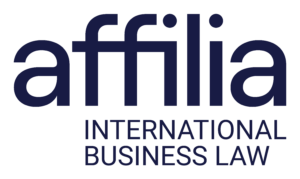Affilia’s anticipated trends and developments in international trade law for late 2025
Market Diversification
- A free trade agreement between Canada and Ecuador is expected to be signed before the end of the year.
- Canada aims to conclude negotiations with ASEAN (Association of Southeast Asian Nations) in 2025.
- Indonesia and Costa Rica are advancing in their process of joining the Comprehensive and Progressive Agreement for Trans-Pacific Partnership (CPTPP), to which Canada and ten other countries in the Indo-Pacific region are already parties.
Canada–United States Trade Relations
- US tariffs: The Canadian steel and aluminum sectors are subject to 50% tariffs. Investigations are underway to extend these tariffs to the aerospace and pharmaceutical sectors. The US might impose new tariffs in August.
- Canadian countermeasures: A first block of counter-tariffs (25% on US steel/aluminum and other products) remains in place. The implementation of the second block will remain on hold unless the US implements new tariffs.
- Key negotiations: On July 21 or August 1, Canada will reassess the possibility of additional counter-tariffs if it fails to reach a security and trade agreement with the United States.
- Contingents : Afin d’empêcher l’afflux d’acier et d’aluminium étranger, le Canada a annoncé mettre en place des contingents tarifaires de 100 % sur l’acier et l’aluminium en provenance de pays avec lesquels il n’a pas d’accord de libre-échange.
- Buy Canada Act: The Canadian government is considering creating a “Buy Canada Act” aimed at promoting Canadian content in public procurement. To date, only certain provinces, such as Quebec and Ontario, have introduced restrictive measures against US companies in their procurement.
Regulatory compliance and operational costs
ESG and environmental standards
- The European Union plans to ease sustainability obligations (CS3D and CSRD directives) and to limit the scope of its carbon border adjustment mechanism, in order to reduce the administrative burden on businesses.
- The United Kingdom will introduce its own carbon border adjustment mechanism starting in 2027, thereby aligning its requirements with those of the EU. Other countries are considering adopting similar measures in the coming years.
- Beginning in 2027, a global carbon tax on maritime transport, ranging from 100 to 380 USD per tonne of CO₂, will apply to ships over 5,000 tonnes. This measure will result in a significant increase in maritime freight costs.
- As of September 2025, companies that produce or place on the market more than 1,000 kg of plastic per year will be required to declare their volumes. Reporting obligations will be progressively strengthened in 2026 and 2027, covering a growing range of products and plastic waste streams.
Tightening of sanctions
- Canada is intensifying the enforcement of its sanctions against Russia, notably through asset seizures, as well as against certain foreign companies, such as Hikvision (China). The United States could impose secondary sanctions against Russia’s energy partners.
Trade Disputes
CUSMA
- The United States is challenging the Canadian Online News Act, expressing concerns about its impact on American companies in the digital sector.
- Activity under the CUSMA Rapid Response Mechanism is intensifying, with the creation of a second panel of experts tasked with investigating alleged violations of workers’ rights in Mexico.
WTO
- Canada is expected to prevail in its trade disputes with the United States (regarding surcharges on steel, aluminum, and the automotive sector) as well as with China (restrictions on agricultural products). However, it is likely that Canada will lose the dispute concerning electric vehicles, unlike the European Union.
- The entry into force of the international agreement aimed at combating subsidies for illegal fishing is expected by the end of 2025.
- Two new members, Albania and Costa Rica, are expected to join the Government Procurement Agreement by the end of the year, thereby expanding the scope of this agreement.
- Thanks to the recent addition of the United Kingdom, the Multi-Party Interim Appeal Arbitration Arrangement (MPIA) now includes 57 participants, out of a total of 166 members of the World Trade Organization (WTO).
- Negotiations for the accession of Uzbekistan and Ethiopia to the WTO are expected to conclude by the end of the year, while Somalia has just officially begun its accession process.
- Under the Most-Favored-Nation (MFN) clause, any tariff concessions granted by WTO members to the United States must, in principle, be extended to all other members — a point the European Union has recently reiterated.
Strategic Advice for Businesses
Risk Mitigation
- Mobilize public financial mechanisms to offset the impact of US tariffs and Canadian countermeasures.
- Diversify your international markets by developing partnerships with new countries (Ecuador, Indonesia, ASEAN members) and develop a specific strategy for rare earths if your sector is exposed to them, in order to secure your supply chains.
Operational Optimization
- Anticipate costs related to carbon emissions generated by your production, especially for maritime transport and border adjustments imposed by the EU and the UK.
- Comply with current ESG requirements and prepare for mandatory registration to the plastics registry before September 2025.
- Refer to the new guidelines from the Competition Bureau to ensure your communications are compliant, particularly regarding the ban on greenwashing and misleading environmental claims.
Proactive Vigilance
- Stay informed about tariff developments and sanctions regimes that may affect your activities.
- Actively participate in trade consultations to defend the interests of your sector and request exemptions where appropriate.
- Consult specialized experts (such as Affilia) to benefit from personalized support in managing geopolitical and transactional risks.
To read the full version of Affilia’s Mid-2025 Forecast, click here.
Affilia thanks André-Philippe Ouellet, Affilia Collaborator, Bernard Colas and Affilia’s team for this forecast.
